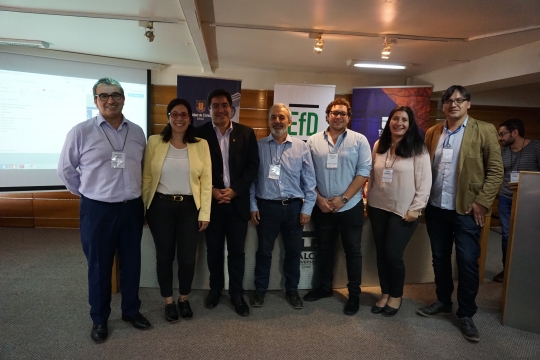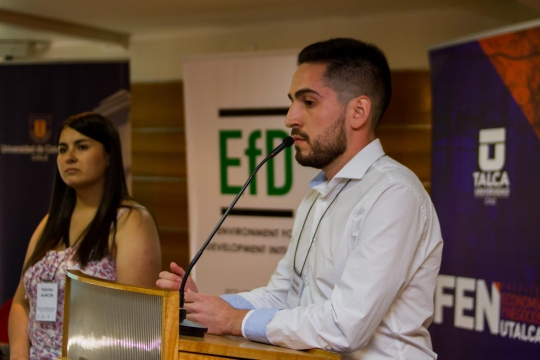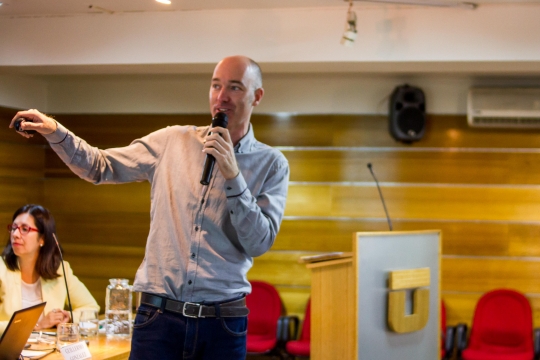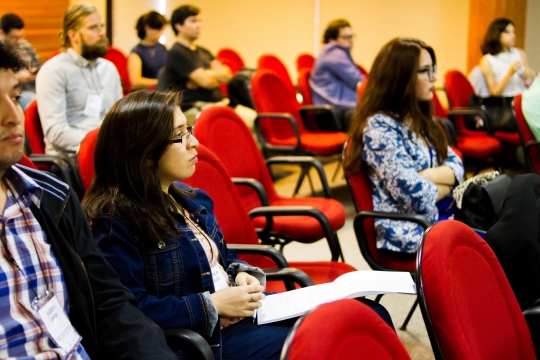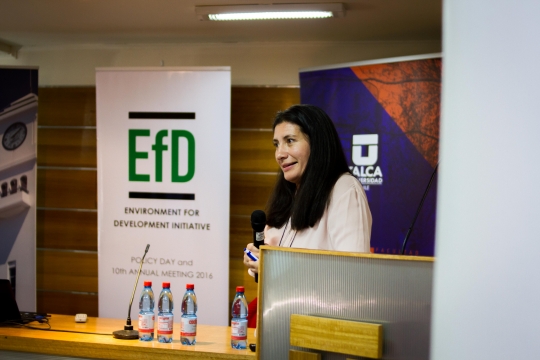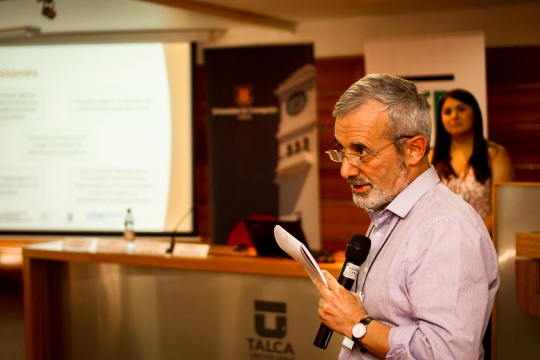The VI Workshop on Economics of Natural Resources and Environment was held on March 21st and 22nd in Santiago, Chile. The activity was organized by the Environment for Development Initiative (EfD) and hosted academic researchers, students, policy makers and government representatives to discuss various topics, especially related to plastic pollution in the ocean and small scale aquaculture. The purpose was to present and discuss the collaboration that EfD researchers have been doing on these topics to strengthen the country’s policy.
The activities included several sessions in which the participants presented their work in various topics like: climate change, biodiversity, wetlands, forests, coastal development, etc. Although there were many themes presented, the two main topics of the workshop (March 22nd) were plastic debris on the ocean and small scale aquaculture, both part of the EfD Marine collaborative program.
In the first session the speakers were Guillermo González from the Circular Economy Office of the Ministry of Environment; Mark Minneboo, Executive director of Plastic Oceans Chile, and Marcela Jaime, senior EfD Chile researcher. In this panel they talked about the current situation of plastic pollution in the ocean, the challenges the country is facing and the public policy surrounding this issue.
“The use of plastic isn’t the problem, actually plastic is less harmful for the environment than other materials, the problem is that waste generating is very cheap in Chile, so we use too much plastic because of its low cost” said Minneboo referring to the current situation of the country. He also said that to address the problem of plastic debris, Chile needs to take action on a regional level with local solutions, developing strategies on the handling and recycling of these materials so it benefits the regions and not only the city of Santiago.
The second session was about the opportunities and challenges for small scale aquaculture in Chile, with the participation of Danilo de la Rosa from the Aquaculture Division, Undersecretary of fisheries and aquaculture, and Jorge Dresdner, senior EfD researcher.
Miguel Ángel Quiroga, director of the EfD Chile center (Núcleo de Investigación en Economía Ambiental y Recursos Naturales), added that various projects and results presented in the workshop came from topics suggested by the country’s Ministries and said that “this cooperation allows us to access better data, necessary for good research…this way we know what the government is doing, their worries and questions and they get to know our work too, so we get inspired to do relevant research that has good impact”
EfD researchers exchanged presentations with government experts and representatives and agreed to meet again for future collaborations.
